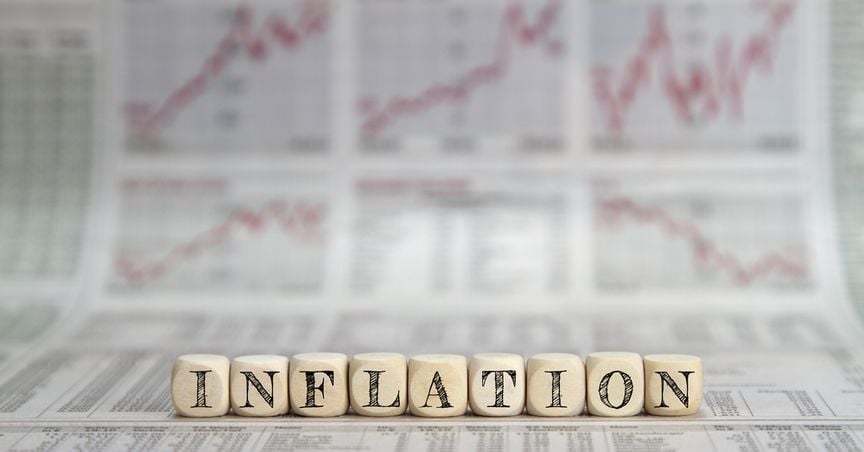Highlights
- With soaring inflation biting UK, the government was forced to borrow more than expected in August.
- Over the past few months, inflation has been above the 2% target set by the government.
- As per Bank of England estimates, inflation may hit 4% by the end of the year as the economy recovers.
- Investing wisely in the stock market and using tax shelters can help investors.
Due to rising inflation pushing up the debt interest payments, the Boris Johnson Government was compelled to borrow more than expected in August. According to the Office for National Statistics, the budget deficit of the UK government fell from around £26 billion in August 2020 to £20.5 billion in August 2021, as the economy is on the path of recovery from the lockdown. Nevertheless, the latest data suggests that inflation had offset the gains from a rebound in tax receipts and lower government spending which led to interest payments on the national debt jumping up by 84% in comparison with the same month last year.
Apart from increasing the burden on the Government, inflation, or money losing its value over time, has been a major problem for savers and investors in the current economic climate. In the past few months, inflation has been above the 2% target set by the Government, with expectations of hitting 4% by the end of the year as the economy recovers, as per Bank of England estimates. Consumer prices went up by 3.2% in August, which may be a temporary hike according to the Monetary Policy Committee of BoE and will return to the target levels by the second half of 2023, but it still may potentially increase your financial burden.
Tackling inflation with a savings account is unfeasible in the current low interest rate environment, for example, going for a one-year fixed-rate savings bond from Atom Bank will at best offer 1.5%, which is far from the 3.2% inflation level.
The value of your money is bound to be eroded by inflation in a savings account and thus it is important to strategically invest your savings. Jason Hollands, Director of wealth manager at Tilney Smith & Williamson, said that instead of holding more cash than needed in the period of low interest rates and high inflation, the money should be invested in riskier assets such as equities. Even corporate and government bonds have a potential for higher income, but the value of your money may still erode as interest payments are set in fixed-rate income bonds.
Many experts have been suggesting that investors should consider index-linked bonds or guilts offered by the Government, as their interest rates move in line with inflation. These bonds are trading at premium prices due to high inflation risk and high demand.
ALSO READ: Buy Alert! 5 UK retail stocks riding on high consumer spends
Stock market vs. Inflation
It is difficult to establish a relationship between financial markets and the economy as they may even move in opposite directions, but over the last year the stock markets have beaten inflation with the FTSE100 and FTSE All-Share indices generating 15% and 19% returns, respectively. When consumer prices are higher, several companies can increase prices without negatively affecting demand, and thus they benefit from an inflationary environment while creating benefits for their investors as the value of their investment increases with higher prices as well.
Some companies have a comparative advantage over others with respect to benefiting from higher inflation, such as banks and mining companies. But it is important for such companies to build a strong brand image so that people choose them irrespective of the prices. For example, brands such as Dove, Surf and Vaseline have an established brand loyalty and thus their sales aren’t impacted much even in inflationary periods. Supermarkets also perform well during inflation as higher prices are transferred to shoppers.
ALSO READ: 4 FTSE copper mining stocks to ride the price rise momentum
Sectors like infrastructure, should also be considered by investors as the demand for new roads, power supplies and telecommunications networks hardly ever fall, for example the Renewables Infrastructure Group and HICL Infrastructure offering 5.3 per cent and 4.8 per cent, respectively. Also, investments in such companies would be inflation-protected as they generally work under long-term contracts.
Protection from unnecessary taxation
Your money and investment returns can be protected by simply using tax shelters, such as holding your money in an ISA or pension. With all returns and withdrawals free of tax, up to £20,000 can be saved in an ISA in the current tax year. Up to £40,000 per tax year can be put into a pension with contributions increased by tax relief. The £2,000 dividend allowance can also be used for the same purpose.
Summing up
The key to beat inflation is to invest in the stock market and create a highly diversified portfolio to maximise the long-term risk-adjusted returns irrespective of the inflation level. Investments should be made in inflation-proof companies and sectors, and tax shelters are a good option to protect your investment returns.




